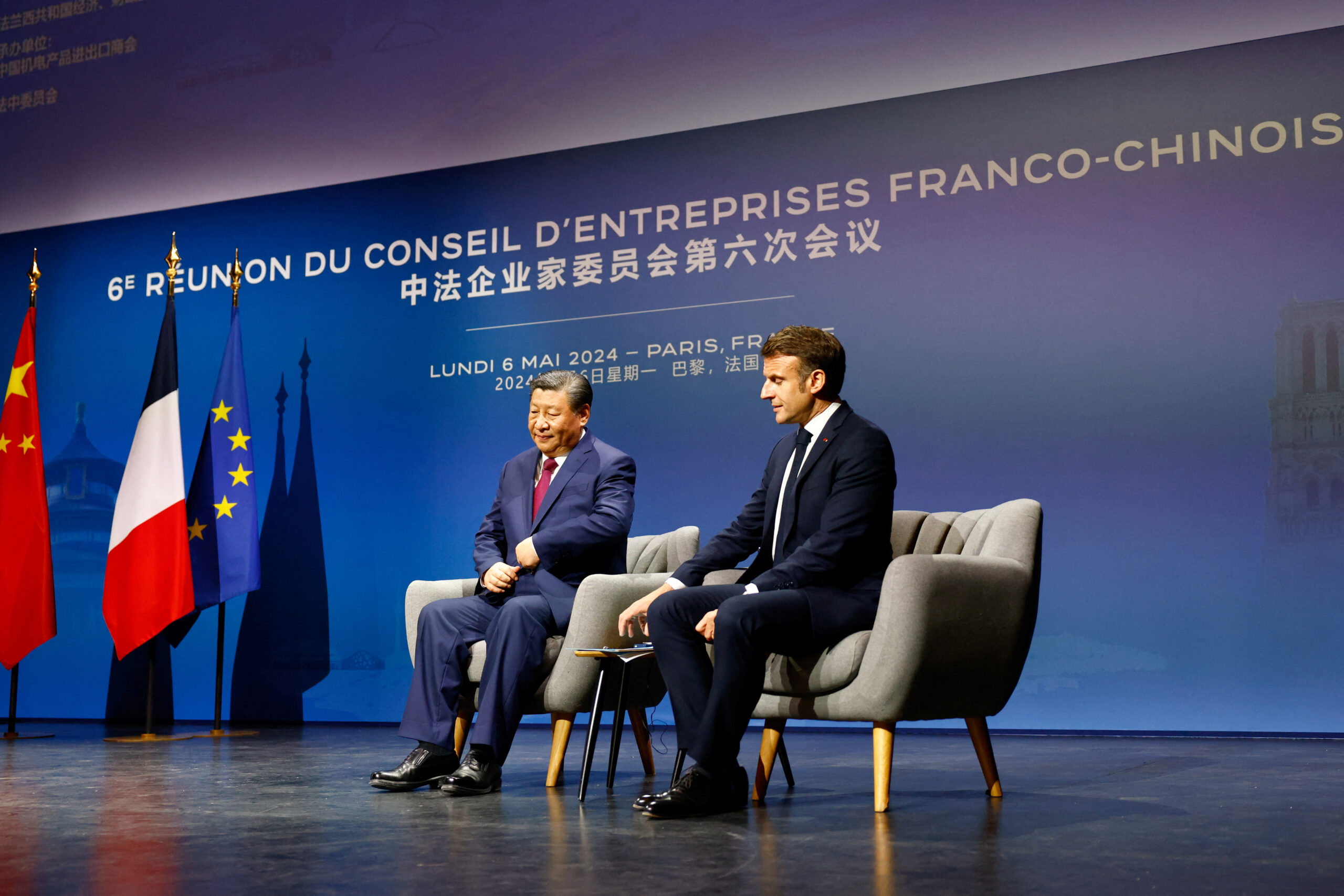ICC responds to Saint Petersburg G20 Leaders’ declaration
Paris – The G20 Leaders’ Summit in Saint Petersburg was far from the failure described by many owing to a deadlock over Syria, and maintained a focus on shared economic objectives for re-balancing the world economy through sustainable growth and jobs.
Among the detailed commitments set forth, was the G20 declaration’s call to achieve a trade facilitation agreement at the World Trade Organization (WTO) Ministerial Conference in December. This standalone agreement could increase global GDP by US$960 billion annually, generate US$1 trillion in world export gains, and thereby create 21 million new jobs, according to a recent study commissioned by the International Chamber of Commerce (ICC) and conducted by the Peterson Institute.
The untold story from Saint Petersburg is the steady progress G20 leaders are achieving between Summits on their shared economic agenda to increase sustainable growth and encourage job creation.
“The substantive nature and the deep degree of policy stewardship embodied in the Leaders’ declaration is evidence that the annual Summit is only the most visible part of an ongoing, collaborative and productive process that has evolved since the G20’s inception at head of state level in 2009,” said ICC Secretary General Jean-Guy Carrier.
The work carried out by G20 officials over the last year has produced agreements on trade, trade finance, protectionism, taxation, anti-corruption and other measures central to the global business agenda.
G20 leaders themselves were clearly confident about the value of their deliberations and conveyed highlights of their work programme to business leaders invited to a special session for social partners. Members of the ICC delegation participating in the meeting included: Harold (Terry) McGraw III, ICC Chairman and President, Chairman, President and CEO of McGraw Hill Financial; Marcus Wallenberg, Chairman of the ICC G20 Advisory Group and Chairman of Sweden’s SEB, Alejandro Ramirez, CEO of Mexico’s Cinépolis and Mr Carrier.
During the meeting, French President Francois Hollande told business leaders:
“Agreements reached between G20 governments have the objective of creating economic growth and jobs, particularly for the young. We have also given a strong signal on trade, and there is a convergence of interests to agree.”
German Chancellor Angela Merkel emphasized that the G20 had agreed strong measures to fight protectionism, which she said is the worst enemy of jobs and of growth. President of the European Commission José Manuel Barroso highlighted the importance of the G20’s extension of the stand-still on protectionist measures to 2016 and the G20’s consensus to “get a deal done” at the December WTO Ministerial Conference in Bali.
“ICC has been promoting policy recommendations to the G20 on these issues for several years. It’s both rewarding to see progress and gratifying to receive endorsement from G20 leaders on the crucial role of Business-20 contributions,” said Mr Carrier. “The special session for social partners, held within the framework of the G20 Leaders’ Summit, represented a significant development in the ongoing government-business dialogue in the G20 since Korea sponsored the first Business-20 Summit in 2010.”
For the fourth consecutive year since Seoul, ICC and CEOs of the ICC G20 Advisory Group have served as a strategic partner in the Business-20, holding leadership positions in the policy development process, publishing recommendations and progress reports on G20 implementation, and meeting with G20 leaders, sherpas and government officials.
“Remarks from UK Prime Minister David Cameron, reiterating that the G20 takes business issues seriously, are encouraging,” Mr Carrier said. “This validates our mission, as the voice of international business, to press for the inclusion of business priorities in deliberations by G20 leaders.”
Business attaches great importance to the G20 process, especially given that many of today’s major economic problems require a global approach. The following points outline ICC’s initial views on select outcomes from Saint Petersburg:
* The G20’s agreement to freeze the introduction of protectionist measures by extending the standstill agreement until 2016 is a significant achievement amidst different perspectives on trade, and one that, due to the resolve and commitment of G20 nations, will stabilize conditions to generate growth and more jobs. If the G20 builds on this type of consensus and begins the process of removing trade barriers, global GDP could increase by as much as US$7 trillion.
Representatives of the ICC G20 Advisory Group include:
Marcus Wallenberg, Chairman and CEO, SEB (Sweden); Yassin S. Al-Suroor, President and CEO, A\’amal Group (Saudi Arabia); Cesar Alierta Izuel, Executive Chairman, Telefonica (Spain); Emilio Azcarraga Jean, CEO, Televisa (Mexico); Antonio Brufau, Chairman & CEO, Repsol (Spain); Paul Bulcke, CEO, Nestle (Switzerland); Carlos Bulgheroni, Chairman, Bridas Corporation (Argentina); Kimball Chen, Chairman & CEO, Energy Transportation Group (United States); Marijn Dekkers, CEO, Bayer (Germany); John Denton, CEO and Partner, Corrs Chambers Westgarth (Australia); Eduardo Eurnekian, Chairman and CEO, Corporacion America (Argentina); Pierre Froidevaux Chavan, Chairman, ICC Mexico (Mexico); Victor K Fung, Chairman, Li & Fung (Hong Kong); Kris Gopalakrishnan, Executive Vice Chairman of Infosys Ltd (India); Ilham Habibie, CEO and President Director, PT Il Thabi Bara Utama (Indonesia); Rifat Hisarc?kl?oglu, Chairman, Eskihisar Group and President of the Union of Chambers and Commodity Exchanges of Turkey (Turkey); Alexander Izosimov, Partner, Deep Roots Capital (Russia); Sheikh Al-Thani Khalifa, Member of the Board of Directors, Doha Insurance and Chairman of Qatar Chamber of Commerce and Industry (Qatar); Seung Youn Kim, CEO, Hanwha (Korea); Young Tae Kim, Chairman, Daesung (Korea); David Kinyua,, Chairman, Aberdares Water Company (Kenya); Andrew Liveris, Chairman and CEO, The Dow Chemical Company (United States); Harold McGraw III, Chairman, President and CEO of McGraw-Hill Financial (United States); Gérard Mestrallet, CEO, GDF Suez (France); Yogendra Kr. (YK) Modi, Chairman & CEO, Great Eastern Energy (India); Raghu Mody, Chairman, The Rasoi Group (India); Peder Holk Nielsen, CEO, Novozymes (Denmark); Alejandro Ramirez Magana, Director General, Cinepolis (Mexico); Mahendra Sanghi, Chairman, MK Sanghi Group (India); Martin Senn, CEO, Zurich Insurance Group (Switzerland); Michael Smith, CEO, Australia New Zealand Bank, (Australia); Jean-Pascal Tricoire, President & CEO, Schneider Electric (France); Peter Voser, CEO, Royal Dutch Shell (United Kingdom/Netherlands); Gérard Worms, Vice Chairman, Rothschild Europe and Chairman of the ICC (France); Zola Tsotsi,, Chairman, Eksom Holdings (South Africa).










